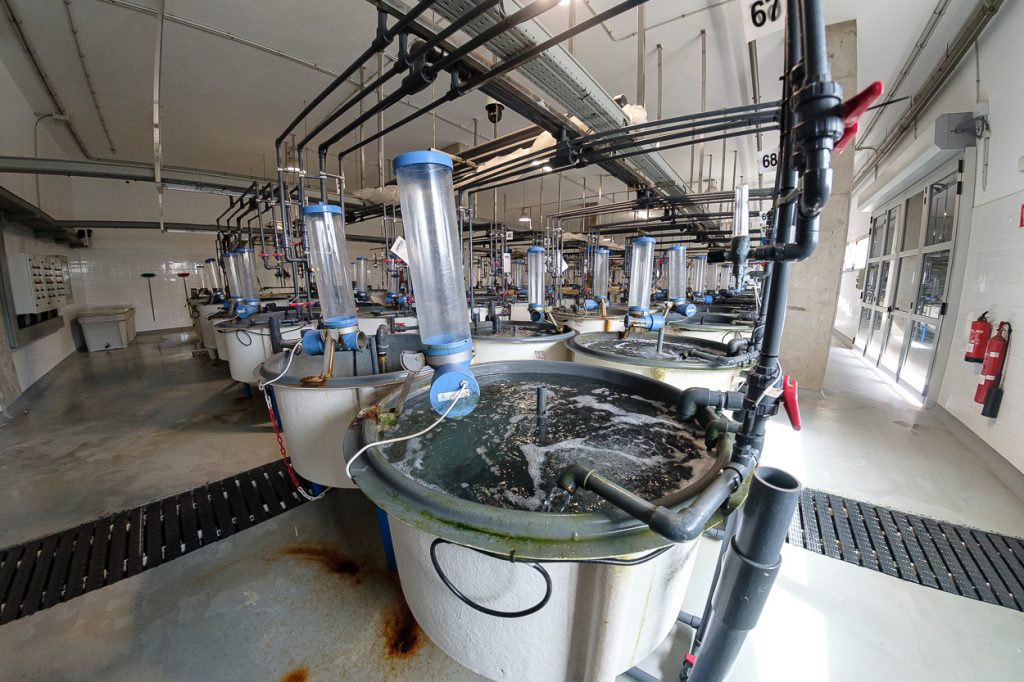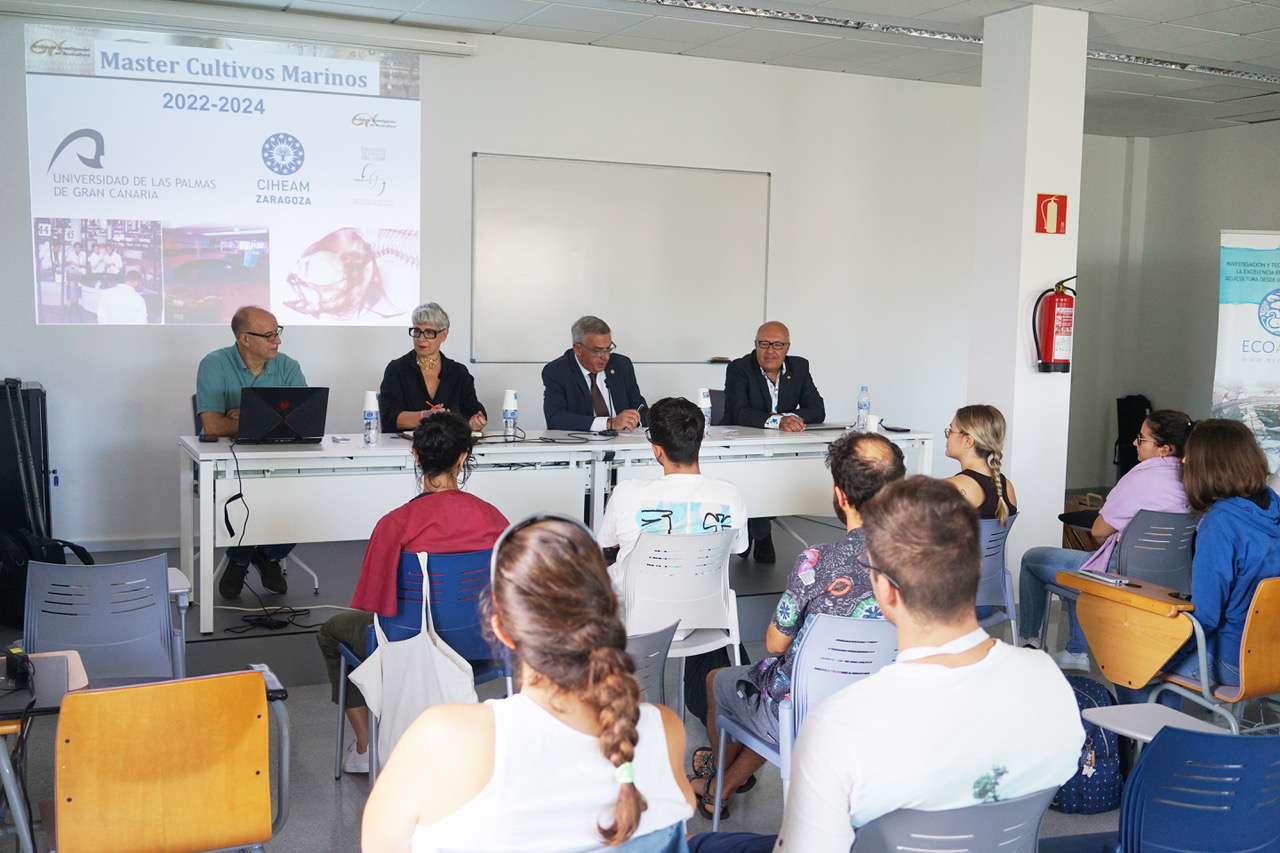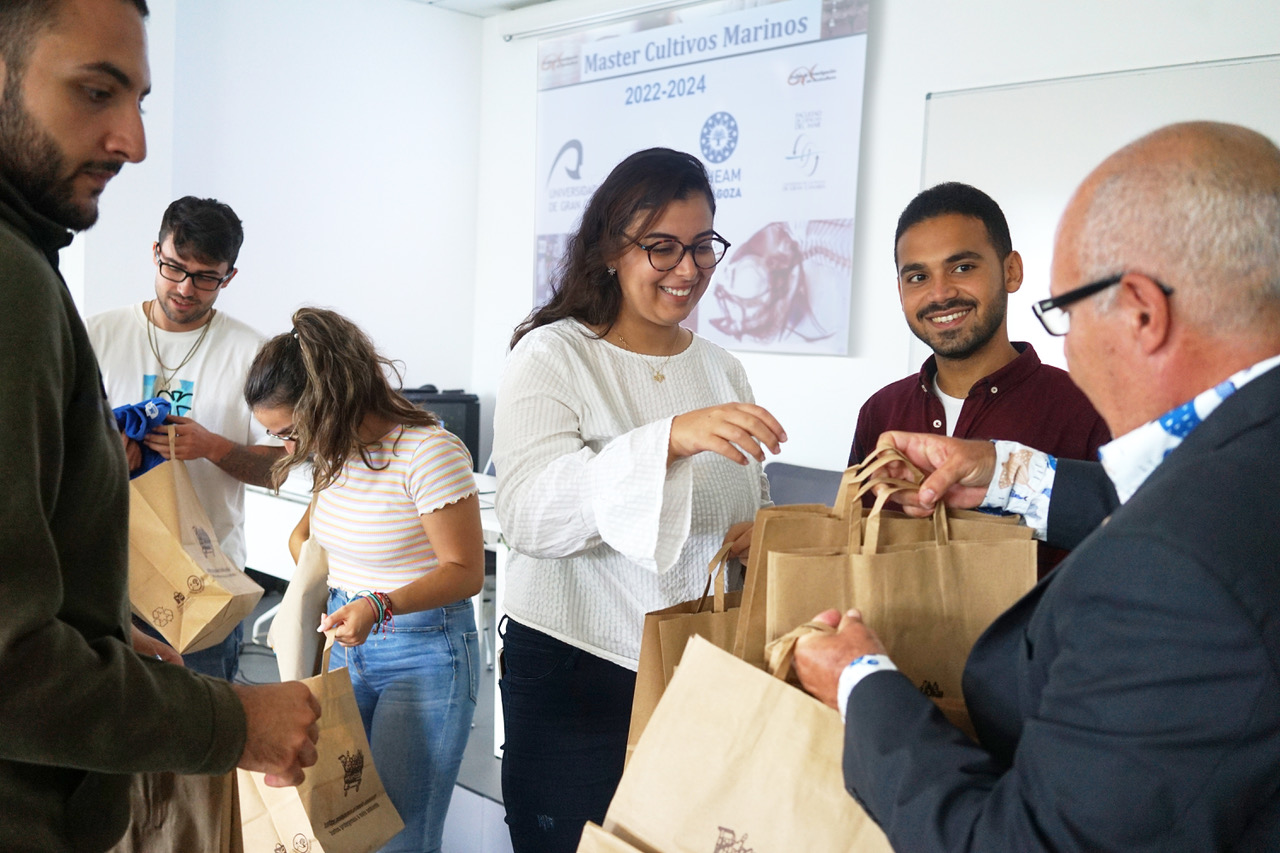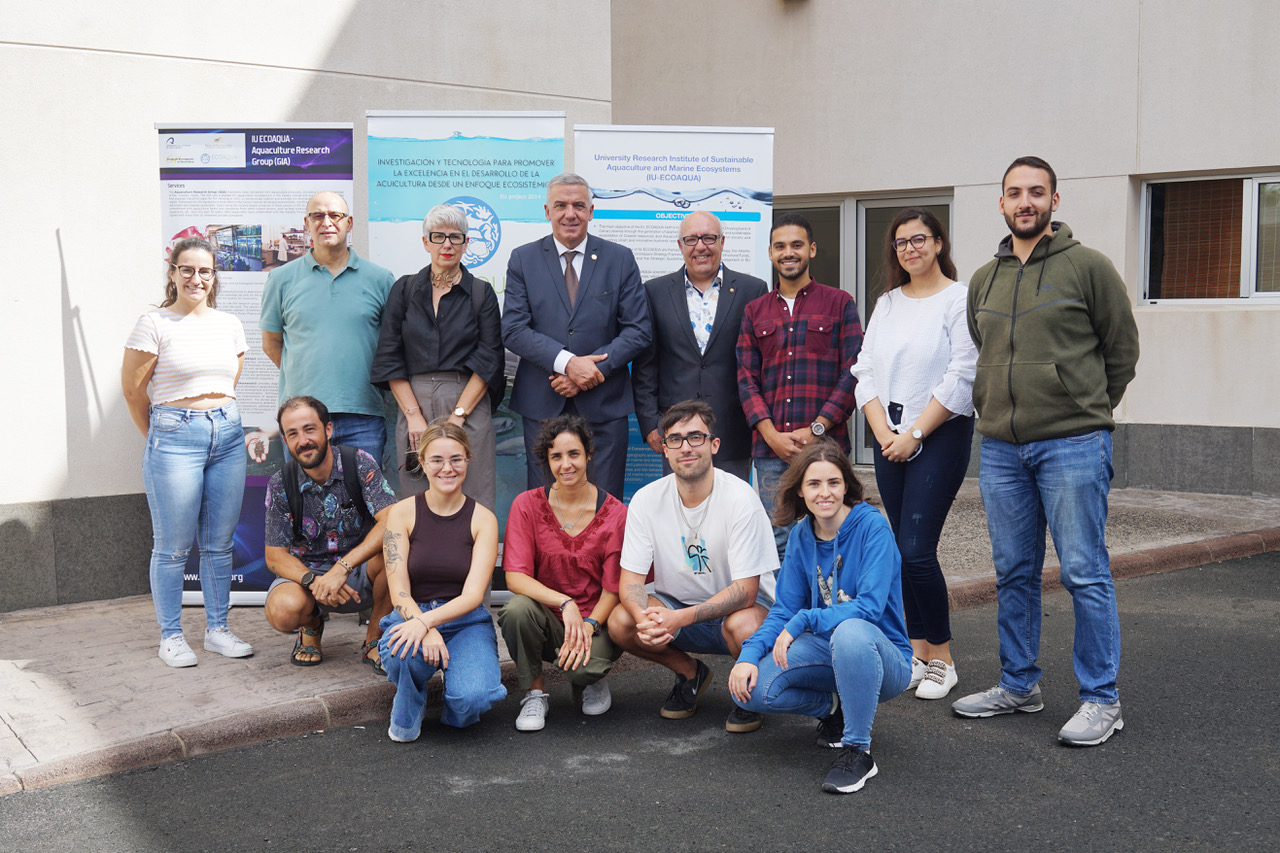The rector of the ULPGC, Lluís Serra, chaired today the opening ceremony of the XII edition of the International Master in Marine Aquaculture of the university institution, which will be followed for two years by 13 students of different nationalities
The Institute for Research in Sustainable Aquaculture and Marine Ecosystems (ECOAQUA) has the most innovative aquaculture infrastructures in Spain to develop research projects, which is why many researchers from all over the world apply to use the facilities of the Science and Technology Park of Taliarte.

Facilities of the University Institute ECOAQUA. Author: Ángel Medina
This milestone is made possible by the integration of the University institute ECOAQUA in the AQUAEXCEL3.0 program, which allows external scientists to access the facilities of the partners by presenting research proposals, being the periods of stay not longer than three months. In this sense, the large infrastructure of the ECOAQUA Institute, with 5,852 m2 distributed in three buildings with the highest technology, in addition to oceanic cages at sea, have made it the most required in the field of aquaculture of all those existing in Europe at this time.
This was explained by Juan Manuel Afonso, head of the Aquaculture Research Group (GIA), a group that has almost 40 years of experience in research projects in this area, during the presentation of the XII edition of the International Master of Marine Aquaculture of the University of Las Palmas de Gran Canaria (ULPGC), taught by the lecturers of the Aquaculture Research Group (GIA) of ECOAQUA, with the collaboration of the International Center for Advanced Mediterranean Agronomic Studies of Zaragoza (CIHEAM), and pointed that this cross-cultural and scientific knowledge makes this master's degree one of the most prestigious in the world in the sector.

From left to right at the table: Juan Manuel Afonso, María Esther Torres, Lluís Serra, Félix Acosta. Author: Pepa Parrilla
The ceremony was presided over by the rector of the ULPGC, Lluís Serra, who was also accompanied by the dean of the Faculty of Marine Sciences of the ULPGC, María Esther Torres, and the director of the master's degree, Félix Acosta.
Lluís Serra Majem praised the research work being carried out in the field of aquaculture of Mediterranean and Atlantic species, which is making it possible to introduce more types of fish on the market.
"Aquaculture fish production is the future, because of the shortage in traditional fisheries, which cannot absorb market require" he explained, and added that this type of production involves sustainable methods that do not endanger biodiversity.
For this reason, he explained that aquaculture does not consume water, but seawater, so it does not involve water stress, does not consume soil, has little greenhouse effect impact compared to livestock farming, and has limited energy consumption.
International master's degree
According to Félix Acosta, the XII edition of the Master in Marine Aquaculture will be followed by 13 students from different Spanish universities, as well as from other countries such as Belgium, Egypt, Tunisia, Algeria or Lebanon, with degrees in Marine Sciences, Biology, Veterinary Science, Engineering, and the programme consists of a first part of Postgraduate Specialization, consisting of 60 ECTS credits, which constitutes the teaching part of the degree and which will last until June 2023. When finished, the students who have passed the relevant academic tests will receive the Postgraduate Specialization Diploma awarded by CIHEAM.
The students will then begin the second part of the master's degree, focused on writing a thesis of this training (final thesis), which involves an applied approach to aquaculture research. The last part will take place between June 2023 and June 2024, after which the students will have to make a public defense of their thesis in any of the collaborating companies to which each student's assigned tutor belongs, in order to finally obtain the Master's degree.

Author: Pepa Parrilla
The Master has an institutional quality accreditation, which is based on the results of user satisfaction surveys of the Faculty of Marine Sciences of the ULPGC, also explained María Esther Torres, inviting the students to participate in them.
The 100% of the students so far achieved 'insert yourself' in the market after the completion of the master's degree. According to data available to the ULPGC, 54 percent of students who have benefited from this university training in previous editions have been able to work, professionally or through specific scholarships, in research. In turn, 32 percent have been contracted in companies and 15 percent have worked as university lecturers in up to 5 countries.
For more information, contact:
Beatriz Díaz beatriz@mandarinacomunicacion.es / 620410871


